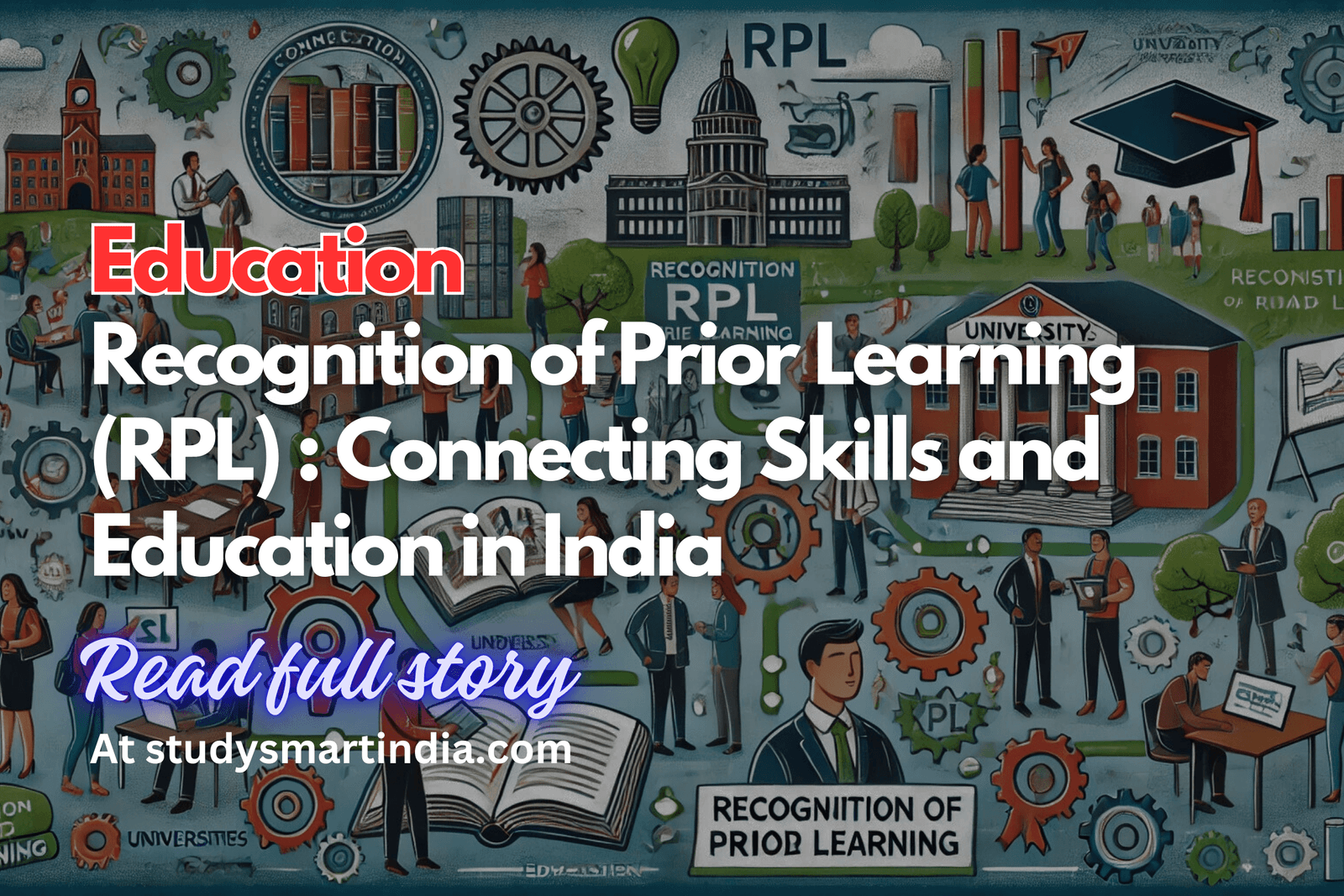The University Grants Commission (UGC) has drafted guidelines for the implementation of the Recognition of Prior Learning (RPL) framework in higher education, in line with the National Education Policy (NEP) 2020 and the National Credit Framework (NCrF). The initiative aims to integrate skills and knowledge that are acquired through formal, informal, and non-formal modes into the academic system.
Concept and Need for RPL
RPL seeks to provide recognition and credit for competencies acquired outside the formal structure of education, such as on-the-job training, self-study, or community work. The need for RPL arises from the large size of India’s informal workforce, accounting for more than 90% of the labor market but not formally certified for its skills.
The NEP 2020 highlights the need to create a lifelong learning society, facilitating skill-based growth and access to education. RPL encourages equal access to higher education and enhances employability, thereby supporting career transitions through the recognition of diverse learning paths.
Framework and Objectives
The framework recommends a strong structure for RPL, providing flexibility in the implementation process but ensuring quality assurance. Key objectives include:
Access to higher education for individuals with non-formal learning.
Lifelong learning for the changing workforce demands.
Formal and informal learning bridge for equity and inclusiveness.
Career transitions and skills development aligned with industry standards.
Benefits to Stakeholders
The RPL framework supports a variety of stakeholders:
Individuals: Formal recognition of prior learning improves employability and self-esteem.
Employers: Reduces the cost of training as existing skills are validated and aligned with organizational goals.
Educational Institutions: Diverse learners are attracted, which enriches academic environments.
Government: Increases GER and supports formalization of the workforce.
Implementation Process
The process includes several steps:
- Awareness and Guidance: Learners are informed about the opportunities and requirements of RPL.
- Pre-assessment: Evidence of prior learning is collected in portfolios or other documents.
- Assessment: Competencies are evaluated using standardized methods, such as interviews, practical demonstrations, or exams.
- Certification and Credit Assignment: Prior learning is recognized with formal credits applicable to academic programs.
- Appeals: Provide avenue for candidates to appeal their assessment decisions if necessary.
Global and Industry Perspectives
Globally, RPL is known by the different terminologies such as PLA in the USA or APEL in Malaysia. It bridges skills gaps, enhances mobility within the workforce, and facilitates educational outcomes to match up with industry requirements. Industry association supports the integration of RPL into the academic world to ensure dynamic workforce building.
Challenges and the Way Forward
While RPL offers transformative potential, challenges like creating standardized assessment criteria, training assessors, and ensuring inclusivity remain. Institutions are encouraged to leverage technology for streamlined assessments and collaborate with industry stakeholders to address evolving skill demands.
It indicates lifelong learning and equity in education, which will help open up a more inclusive and skilled society. Valuing diverse learning experiences, RPL marks an important step toward democratizing education and fostering a skilled workforce.


Average Rating